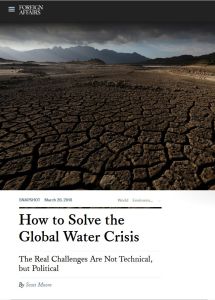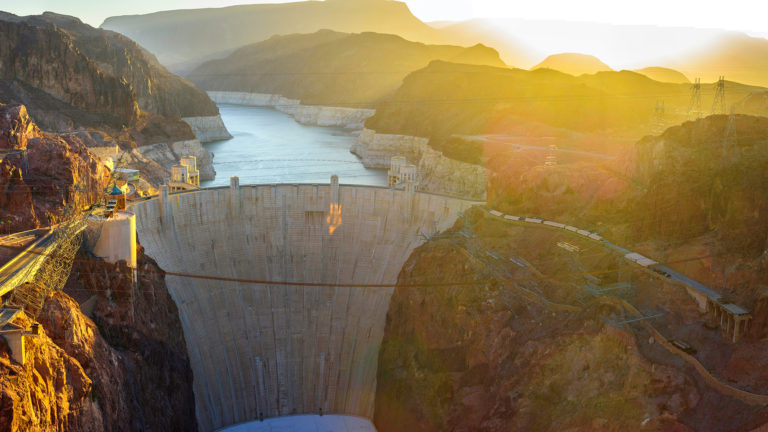Join getAbstract to access the summary!

Join getAbstract to access the summary!
Scott Moore
How to Solve the Global Water Crisis
The Real Challenges Are Not Technical, but Political
Foreign Affairs, 2018
What's inside?
Money and political willpower can solve the global water crisis.
Recommendation
The World Wide Fund for Nature predicts that two-thirds of the global population could suffer from water shortages by 2025. Water on Earth – although it’s plentiful – it is not always potable or readily available where needed. As Scott Moore argues in a Foreign Affairs snapshot, water scarcity is less of a practical problem than a political and financial one. He implores wealthy states to enact appropriate policies and make the necessary investments to prevent water scarcity from becoming a threat to global security. If you’re concerned about world stability, getAbstract suggests adding this article to your reading pile.
Summary
About the Author
Scott Moore is a Senior Fellow at the Kleinman Center for Energy Policy at the University of Pennsylvania and the author of the forthcoming book Subnational Hydropolitics.

















Comment on this summary